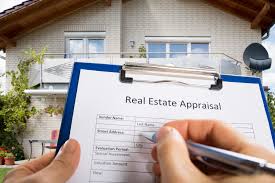 When buyers think about how much money they’ll need to purchase a home, much of the attention is placed upon the down payment. After all, it’s typically the largest amount of funds needed but there are also closing costs that need to be addressed. There are closing costs associated with all mortgages, even the so-called “no closing cost” mortgage.
When buyers think about how much money they’ll need to purchase a home, much of the attention is placed upon the down payment. After all, it’s typically the largest amount of funds needed but there are also closing costs that need to be addressed. There are closing costs associated with all mortgages, even the so-called “no closing cost” mortgage.
There are always closing costs, it just depends upon who pays them. With a no-cost mortgage, the lender typically adjusts the interest rate up a bit and in turn provides a lender credit at the closing table. That’s one way to come to the closing table with less cash. You can also have the seller’s pay for your closing costs. How can you do that?
First, you ask. It’s part of the negotiations between you and the sellers. Whether or not your request is accepted depends a lot on the current real estate market in your area. If the real estate market is competitive and houses are moving quickly, the sellers will have little incentive to pay for your costs because another offer will likely come in without the request. On the other hand, if the real estate market is slow, the sellers may be more inclined to accept your offer or even announce the sellers will pay for the buyer’s closing costs as part of the listing.
The request to have the sellers pay your closing costs is something you and your agent will prepare. Your agent will have a pretty good idea about the current market and how much, and if, you should make the request. Your contract might have something like “And pay 1% of the buyer’s closing costs.” If the sales price is $200,000, that means the sellers agree to pay $2,000 of your costs at the closing table. Or, instead of a percentage, you might ask for a specific amount. You might ask for a $3,000 seller credit at the closing table.
There are limits based upon how much the sellers can pay based upon a percentage of the sales price. For example, with VA loans, the sellers are able to pay up to 4.0% of the sales price. On that same $200,000 house, that’s up to $8,000. Closing costs typically won’t be anything near that but that’s the VA limit nonetheless. FHA loans limit seller contributions to 6.0% of the sales price as do USDA loans.
Conventional loans, those approved using Fannie Mae or Freddie Mac guidelines. The maximum seller-paid amounts can range from 3.0% for transactions with less than 10% down to 9.0% with a down payment of 25% or more. I think you can already see that some of these are rather generous. I doubt you’ll see any sellers agreeing to pay $18,000 down toward fees.
 The appraisal may also be affected with a larger than normal seller contribution to closing costs. If the contract shows the sellers agree to pay $5,000 in loan fees and other incentives, did the sellers realize they had to give away $5,000 to sell a $200,000 home? If so, then what is the house really worth, $200,000 or $195,000? Remember, when your loan is reviewed, the lender will use the lower of the sales price or appraised value. If the appraised value is indeed $5,000 lower than the sales price, the lender will use the lower amount as the loan basis. This means the buyers will have to come to the closing table with the additional $5,000.
The appraisal may also be affected with a larger than normal seller contribution to closing costs. If the contract shows the sellers agree to pay $5,000 in loan fees and other incentives, did the sellers realize they had to give away $5,000 to sell a $200,000 home? If so, then what is the house really worth, $200,000 or $195,000? Remember, when your loan is reviewed, the lender will use the lower of the sales price or appraised value. If the appraised value is indeed $5,000 lower than the sales price, the lender will use the lower amount as the loan basis. This means the buyers will have to come to the closing table with the additional $5,000.
What if the sellers say, “No thank you” when making your request? There’s still a way to achieve your goal. Let’s say your closing costs are adding up to $3,000. The house you want is listed at $300,000. This time around, adjust your offer to $303,000 instead of $300,000. The sellers still net the same amount of proceeds. Yes, your loan amount just went up but this reduces your money needed to close. It’s typically a comparison of increasing a monthly payment by say $15 or coming to the closing table with $3,000 in additional cash.
Finally, seller concessions need to be in line with what is customary for the area. In fact, on your appraisal there is a section that asks whether or not seller concessions are common for the neighborhood. This is a judgment call by the lender however and doesn’t mean that if there are no recent sales that carried a seller-paid closing cost agreement your loan won’t be approved.
Your real estate agent should have a pretty good idea if it’s okay to ask for seller-paid closing costs as well as what the prevailing market is offering. You should know in advance the likelihood of the sellers accepting your request for closing cost assistance.
Questions? Learn more about USDA, FHA and VA loans by calling us at the number above, or just submit the Info Request Form on this page.

Leave a Reply